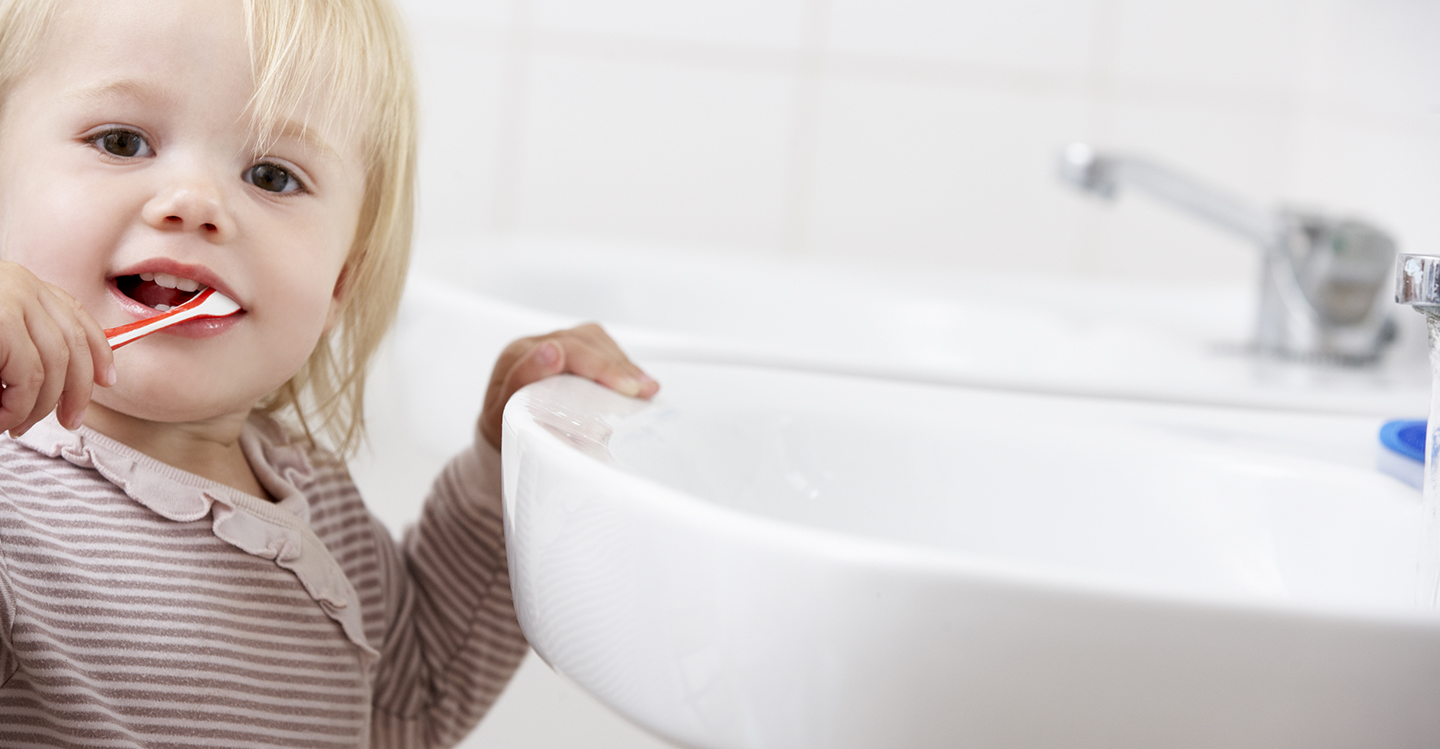Good dental health is one of the most valuable gifts a parent can give their toddler. Forming the habits necessary to look after their teeth young will hold a young child in good stead in the years to come. The good news is that you can help your child form those habits from quite a young age.
When to start
Babies
You should start cleaning your baby's teeth as soon as they appear, which usually happens around 6 months. You'll notice, however, that your baby's gums are quite tender, particularly during teething. Many parents find that using a piece of gauze or muslin cloth wrapped around their fingertip is a more gentle approach. Toothpaste, however, shouldn't be used until your baby is around 18 months old.Toddlers
As more teeth appear, and their gums become less tender, babies or toddlers should have their teeth brushed twice a day: once after breakfast (they will be put off their food due to the taste if they brush before) and once before bed.What you'll need
- Low fluoride or children's toothpaste
- Age appropriate toothbrush
How to do it
- Use an age appropriate toothbrush and toothpaste. The packages will usually be labelled
- With a child over 18 months, place a pea-sized amount of toothpaste on the brush
- Cradle your baby or toddler facing away from you, ideally in front of a mirror so you can both see what you're doing
- Using small, circular motions, brush each tooth on all sides
- Brush forward and backwards on top of the chewing areas of the molars (the back teeth)
- Get your child to spit out any remaining toothpaste. It's not necessary to rinse until their mouths grow and you increase the amount of toothpaste
- Give lots of praise to your child each time they brush and reinforce brushing as part of their daily routine. Thank them for helping you and give them a kiss and a hug
How to prevent tooth decay
Tooth decay is caused by the mild acid formed in the mouth when saliva and sugary foods mix. To prevent tooth decay, limit sugary foods throughout the day. If your toddler does have any sweet foods like cake, biscuits, lollies or dried fruits, try and give them a glass a water and get them to swish it around in their mouths.What can I do if my toddler doesn't like brushing their teeth?
- Try brushing your teeth together with your toddler. Toddler's love copying adults, and doing things that grown-ups do. If you make it part of your routine to brush your teeth together, they will enjoy both the process and the feedback. It can even help if you have the same type or colour of toothbrush
- Let your toddler keep a hand on the brush as you brush their teeth. You might remember the difference being in control makes when your mum or dad was removing a splinter or cleaning a wound. Allow your toddler to exert a bit of their own control
- Brush everyone else's teeth! If your toddler has dolls or toys, explain to them that even these characters need looking after. After they're finished, you might be courageous enough to let your toddler have a go on your teeth, then explain that it's time to swap and it’s now your toddler's turn
- Everyone has different strategies, so whether it's using distractions or a reward system, explore to see what works best.
Passing the baton
Most children don't develop the fine motor skills necessary to brush their teeth properly until after they reach 6 or 7 years of age. As much as possible, try and monitor their brushing and assist if necessary in the lead up to this level of maturity. Even then, you might remember fibbing when your parents asked if you had brushed your teeth, so keep an eye on them!Tips
- Change toothbrushes every 3 months, or when the bristles start to spread
- You can start visits to the dentist as soon as your baby's teeth start to come through. It might be a good idea to get a check-up yourself once their baby teeth appear, and then speak to your dentist about when it would be best to book your baby an appointment
- Teach your child that swallowing toothpaste is bad for them. Low-fluoride toothpastes are unlikely to make them sick, but it's better to form the habit of spitting out early
- You can start flossing as soon as your baby or toddler's teeth start to touch
- Check for tooth decay by asking your toddler to say 'Ahhh' and examine to see whether there are any yellow or brown lines forming on their teeth
- Remember that the habits your children form while they're young can help prevent problems later in life, so try and make dental care as simple, fun and easy as possible



